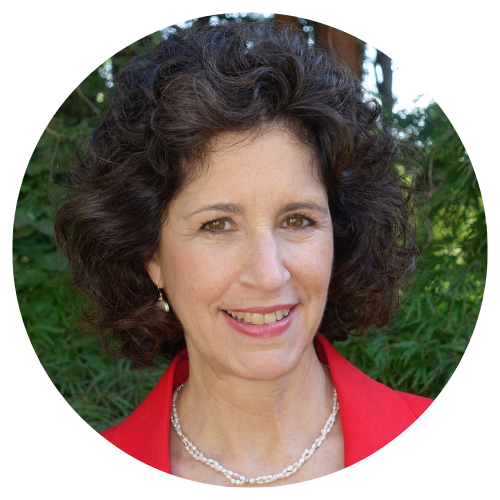 ‘It was creating systems that had never existed before, and it was not something I ever thought I would do.’
‘It was creating systems that had never existed before, and it was not something I ever thought I would do.’
Cindy Estis Green grew up in a hospitality-adjacent business, working at her family’s sleepaway summer camp, but it wasn’t until she worked for an actual hospitality company during college that she started thinking it might be a career. She’d started out as a human development and family studies major at Cornell University only to transfer into the school’s hospitality program during her sophomore year. “The economy wasn’t so great and everybody in the hotel school was getting multiple job offers,” Estis Green said in a recent interview with HSMAI, “so it sounded like a good idea to me. And it sounded interesting.”
That feeling was reinforced when she completed an eight-month work-study program with Disney in Orlando, focusing on food-and-beverage training at the company’s hotels and restaurants. “I loved the environment,” Estis Green said. “I knew I really liked the atmosphere of hospitality, but I still wasn’t quite sure what I was going to do.”
Her first job out of school was with the National Restaurant Association, publishing cookbooks and training manuals. That led to an interest in marketing, which prompted Estis Green to get an MBA from American University in Washington, D.C., with a concentration in market research. As she considered a career in hospitality, her timing couldn’t have been better. Hotel companies were just beginning to automate their systems and trying to figure out how to make use of the increasing amount of data they were collecting from their customers.
In 1983, Hilton International hired Estis Green as director of marketing information systems and research — a newly created position. She spent seven years with the company, including several as general manager of underperforming properties that she used her expertise in data and technology to turn around, then left to start Driving Revenue, a data-mining consultancy that she eventually sold to Pegasus Solutions. After that came The Estis Group and, finally, Kalibri Labs, a benchmarking platform for hotel revenue performance that she co-founded in 2012 and continues to serve as CEO today. Along the way she’s written industry-defining books and special reports such as Distribution Channel Analysis: A Guide for Hotels and Demystifying the Digital Marketplace, some of them supported and/or published by the HSMAI Foundation.
A pioneer in helping the hospitality industry understand big data and distribution, Estis Green has had the kind of career that wins you awards. The latest is HSMAI’s Vanguard Award for Achievement in Revenue Management, which Estis Green will receive during ROC Americas 2021 — part of HSMAI’s Commercial Strategy Week in Dallas on Sept. 27–30. “It’s been a long time that I’ve been involved with HSMAI, and it just makes me feel happy,” said Estis Green, who first joined HSMAI as a student at Cornell and has served in a variety of volunteer roles, including chair of the HSMAI Foundation. “I’ve been involved in so many aspects of it and I have so many relationships as a result of my involvement with HSMAI. So, it’s such a huge honor to get this award.”
Here are five other things we found out during our interview with Estis Green:
1. She made it up as she went along at Hilton — literally. “I was setting up automating sales and catering, which was new at the time; building revenue management systems and spreadsheets, which was new at the time; and creating databases to be able to make sales and marketing decisions. It was creating systems that had never existed before, and it was not something I ever thought I would do. It was really my interest in hotels and hospitality combined with my exposure to data and marketing information systems that led me to what ultimately became a focus on sales, marketing, and revenue optimization in this whole area.”
2. She also put her data into practice at Hilton. “At that time when I was with Hilton International, Hilton Domestic was a separate company, so most of the hotels were outside the U.S. Most of the GMs were traditional European general managers; they were all men, and when I would talk to them about what I was working on, they would say, ‘Oh, this data and technology doesn’t really matter. If you worked in a hotel, you would realize that it is meaningless and it’s not going to change anything we do.’
“I got tired of hearing that, because I knew that data and technology could make a difference, so I asked to go into a hotel. I went into a hotel in Washington, D.C. — a pretty big hotel, 420 rooms and a fair amount of meeting space. They were really struggling. I used all the data and technology to segment the business and determine what we were getting and what we were missing, and then created tactical programs to go over to improve things. And we turned the hotel around — we went from being unprofitable to profitable. Then I became a general manager and got moved to a different hotel outside of Newark airport and did the same thing. I really wanted to prove that this data and technology was not a fad or a trend.”
3. It’s called Kalibri Labs for a reason. “I’ve always tried to stay a few steps ahead on what is out there and what’s available — thinking of different ways to apply new technology to old problems and seeing how it can be leveraged to make a difference. I never want to get caught up in doing it the same way and thinking, ‘Oh, I’ve got this. I know how to do it. I’m going to keep doing it the same way I’ve been doing it.’ Which is one of the reasons when I started Kalibri Labs that I put the word ‘Labs’ in the name, because I wanted it to be clear that we’re going to be constantly doing R&D, and constantly changing and improving, and always pushing the envelope for ourselves.”
4. She loves hospitality because of the people — and the digital. “I’ve never felt like I had a job; I’ve always been part of the community. I think it’s much more compelling to feel part of the community than just doing a job in some random industry. I have at various times thought about leaving, but once I started Driving Revenue and then sold that to Pegasus, I knew that I would stay within hospitality, because at the time there was a big upswing in the digital space. All of these big tech companies like the online travel agents started emerging. I wanted to help the industry improve their ability to use data and technology, and I found myself being someone who could explain it to general managers or owners or asset managers. So, after selling Driving Revenue, I thought, ‘Okay, I’ll write some industry books and help the industry understand how distribution channels and technology and data are starting to become much more prevalent in hospitality.’”
5. She sees an upside to the pandemic. “The industry was fat and happy for a while. Business was good, and everybody figured, ‘Why should I change anything if we’re making a lot of money and it seems to be going well?’ But they were not as mindful of what was happening behind the scenes. All of these big tech platforms like Expedia, Booking.com, Google, potentially Amazon, Airbnb — they were entering the travel space and are potentially threatening the profitability of hotels because of how much value they want to take out of it. I think the pandemic forced everyone to pay attention to everything again as though it was a clean slate: ‘Wait a minute, we can’t necessarily operate the way we have been. There’s no autofill on my hotel anymore, so I have to understand the composition of demand.’ Back to my work at Hilton International where I was trying to tell people, ‘Hey, you really have to look at the segmentation of the business, you can’t just look at overall occupancy’ — I feel like I’m saying the same things again to everybody that I said when I started in the industry. We really have to understand this.”
